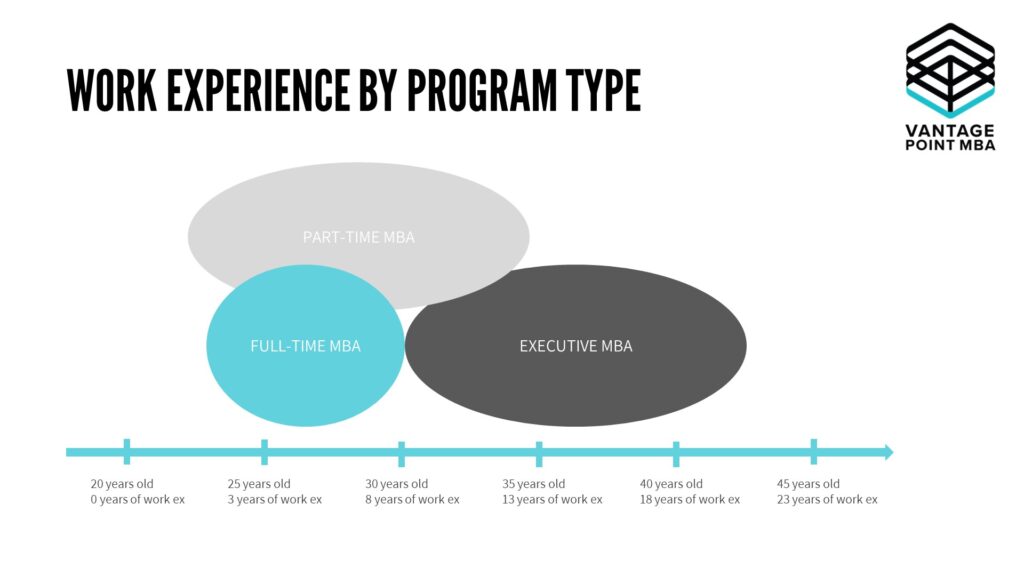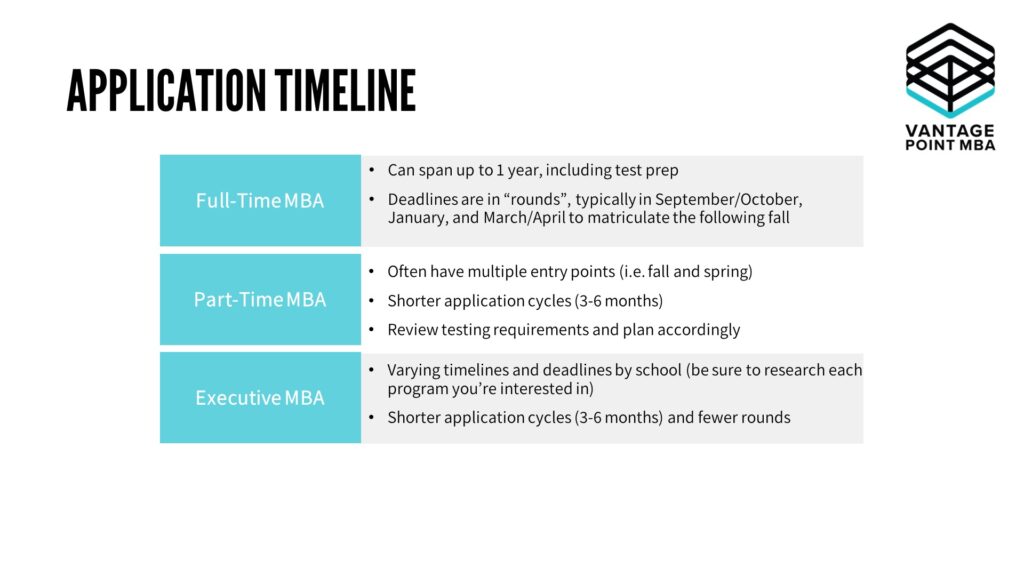Is an MBA Worth It for Me? The Top Three Things to Consider

Originally published on November 23, 2023. Updated on November 13, 2025.
If you’re starting to think seriously about applying to business school (maybe you even read our article, ‘Should I Get an MBA? Stuff They Tell You and Stuff They Don’t‘), you likely have a multitude of questions swirling in your mind:
Where should I apply? Will I get into a program I’m excited about? And, perhaps most importantly, is going to business school and getting an MBA worth it for me?
If you’re considering a full-time program, the idea of stepping away from your current job for a post-MBA career path that only sounds appealing can feel like a big leap. To help structure your decision-making process, here are the top three factors we recommend considering as you evaluate whether an MBA is worth it for you.
#1-Cost
While an MBA is often an investment with a strong ROI, it’s essential to understand the full scope of costs involved and how you’ll cover them.
Tuition and Expenses
The costs associated with an MBA vary widely. For a top full-time MBA program, you’re looking at $250,000 or more over two years. That estimate typically includes not just tuition, but also living expenses like rent, food, transportation, and other essentials. Part-time MBA programs tend to cost around $150,000, while executive programs can be around $200,000—figures that generally reflect tuition and program-related fees only. Beyond tuition, you’ll also want to consider expenses like living costs, books, and supplies.
Travel and Extras
Beyond tuition, you’ll want to factor in the “extras” that come with business school. Travel expenses can add up, particularly if you’re interested in extracurricular trips or experiences with classmates. Some travel is optional—like ski trips or European summer tours with new friends. But, be realistic about FOMO (fear of missing out); these opportunities are hard to pass up, especially in a close-knit campus environment.
Other travel may be a required part of the curriculum. Many MBA programs offer or require global coursework, which involves immersive travel to study regions around the world. Part-time and executive programs may also require travel if the school isn’t in your city, including lodging costs if you attend on-campus sessions.
Opportunity Cost
For full-time MBA students, there’s an extra financial consideration: opportunity cost. Stepping away from your job for two years means forgoing income during that time. This cost varies, but it’s essential to weigh this lost income as part of your financial plan. Scholarships and financial aid can help offset these costs; in fact, you may even be able to negotiate some scholarship offers. For tips on how to do this, see our article on MBA Scholarships: Can You Negotiate Them, and If So, How?
#2 – Timing
Timing is a critical factor when asking, Is an MBA worth it for me? It involves two key components:
- How much work experience you have?
- How much time you have to prepare your application?
Career Stage
Think about where you are in your career. MBA programs cater to professionals at different stages:
- Full-time programs often attract early-career candidates with less experience and lower opportunity cost. These applicants benefit from using the MBA to grow in or pivot their careers.
- Part-time and executive programs are typically better suited to mid-career professionals who want to continue working while pursuing their degree.

Application Preparation
The timeline to apply also matters. For top full-time programs, it’s best to start preparing at least a year before you plan to enroll. Many applicants begin by studying for the GMAT or GRE, visiting campuses, and networking with current students or alumni. Applications for full-time MBAs are generally due in September/October (Round 1) or January (Round 2) with classes starting in the fall.
Part-time and executive MBAs have more flexible timelines, often with shorter lead times between application and enrollment. Understanding these timelines can help you decide which type of MBA program is worth it for you and whether an MBA is right for your circumstances.

#3 – Goals
Your career goals are perhaps the most critical factor when considering, Is an MBA worth it? We can’t stress this enough: define your personal and professional goals before committing to an MBA program.
Why Clear Goals Matter
Having clear, ambitious, yet realistic goals is essential. These goals not only give you direction but they also strengthen your application. Admissions committees seek candidates who have a well-defined purpose for pursuing an MBA. Knowing what you want to achieve shows the admissions team that you’re likely to make the most of the MBA experience.
Maximizing Your MBA Experience
Arriving on campus with clear goals also helps you navigate the MBA experience effectively. Full-time MBA programs move quickly. To make the most of it, you need a clear sense of what skills you want to build and which people you want to network with. Without this focus, you risk missing out on important career opportunities, including internships and job offers.
For tips on setting strong career goals that resonate with admissions, read our guide on Crafting Your MBA Career Goals.
Reasons to Pause and Reflect
If you’re considering an MBA to “take a break” or escape a job you dislike, it’s worth pausing to reflect. The same goes if you’re applying to satisfy someone else’s expectations, like those of a parent, partner, or boss. An MBA is a substantial investment of time, money, and energy, and it’s best pursued for reasons that align with your own goals.
Valid Reasons for Pursuing an MBA
Many applicants pursue an MBA to pivot into a more meaningful or fulfilling career. Others want to accelerate their current trajectory, shifting from execution to leadership. Some dream of becoming entrepreneurs.
These are all valid, compelling reasons to pursue an MBA. They can also help you determine which type of program is the best fit, whether full time, part time, or executive.
If you think your answer is ‘yes’ to the question, ‘is an MBA worth it for me?’ and are ready to apply, let’s chat! Click here to request an initial consultation.






Pingback: How to Be Successful in Business Without an MBA - Local Coon Rapids News
July 24, 2024 11:07 amPingback: How to Be Successful in Business Without an MBA - TechBuzz
July 24, 2024 11:11 amPingback: How to Be Successful in Business Without an MBA – UnPopular Updates
July 24, 2024 11:19 amPingback: How to Be Successful in Business Without an MBA – US News
July 24, 2024 11:20 amPingback: How to Be Successful in Business Without an MBA
July 24, 2024 11:23 amPingback: How to Be Successful in Business Without an MBA – Swanky Trader
July 24, 2024 11:27 amPingback: How to Be Successful in Business Without an MBA | Entrepreneur – Allyn J Raphael, LLC
July 24, 2024 11:32 amPingback: How to Be Successful in Business Without an MBA – Business Ideas New
July 24, 2024 11:33 amPingback: Want to Start a Business? Skip the MBA, Says Bestselling Author – The Wall Street Post
July 24, 2024 11:35 amPingback: The way to Be Profitable in Enterprise With out an MBA - MONEY RULES THE WORLD
July 24, 2024 11:35 amPingback: How you can Be Profitable in Enterprise With out an MBA - trendenclave
July 24, 2024 11:41 amPingback: Want to Start a Business? Skip the MBA, Says Bestselling Author - Unmeterednews
July 24, 2024 11:54 amPingback: How to Be Successful in Business Without an MBA - COOLEST9JA
July 24, 2024 11:57 amPingback: How to Be Successful in Business Without an MBA - Its My Story
July 24, 2024 12:02 pmPingback: How to Be Successful in Business Without an MBA - reviewer4you.com
July 24, 2024 12:04 pmPingback: Ειδήσεις 1.000 Άρθρα Καθημερινά - news portal - Athens-News.GR
July 24, 2024 12:05 pmPingback: How to Be Successful in Business Without an MBA | Entrepreneur - The Entrepreneurs Weekly
July 24, 2024 12:24 pmPingback: How to Be Successful in Business Without an MBA | Entrepreneur - Entrepreneur Insider
July 24, 2024 12:33 pmPingback: Want to Start a Business? Skip the MBA, Says Bestselling Author – BNS Global News
July 24, 2024 1:16 pmPingback: How to be successful in business without an MBA - Inspire Chat
July 24, 2024 9:25 pmPingback: Easy methods to Be Profitable in Enterprise With out an MBA - Negociosprime
July 24, 2024 10:23 pmPingback: How to Be Successful in Business Without an MBA - M-LORD BLOG
July 24, 2024 11:28 pmPingback: How to Be Successful in Business Without an MBA – Som2ny Network
July 25, 2024 1:58 amPingback: How to Be Successful in Business Without an MBA – thefinetune.site
July 25, 2024 7:13 amPingback: The Real Cost of an MBA from a Top Program The Real Cost of an MBA from a Top Program
April 3, 2025 3:12 pmPingback: What AI Can’t Do and Why MBA Admissions Consultants Still Matter
January 16, 2026 12:26 pm